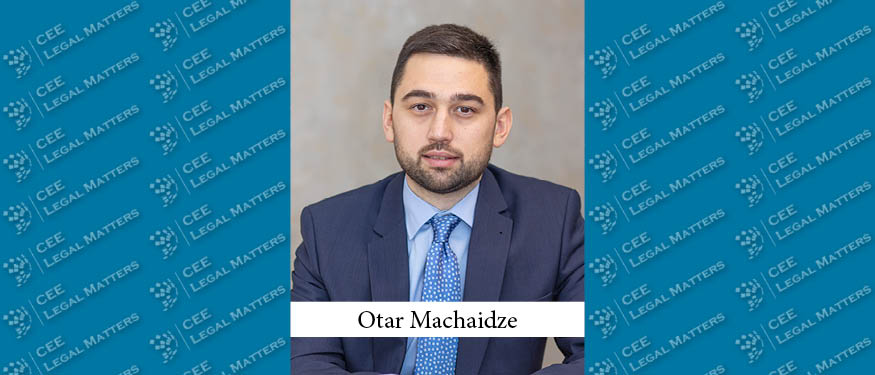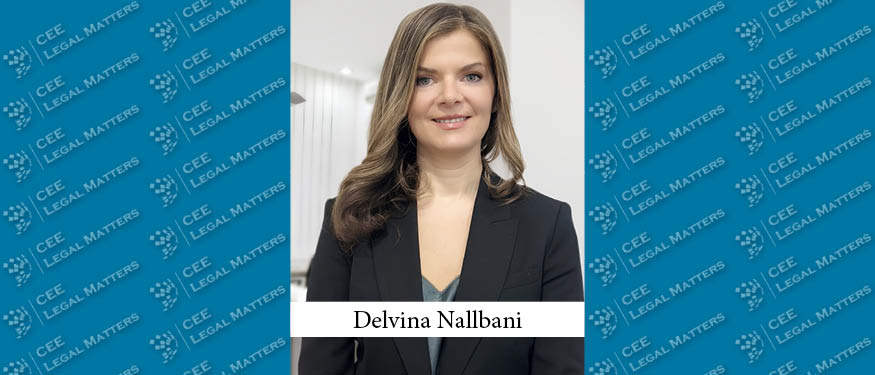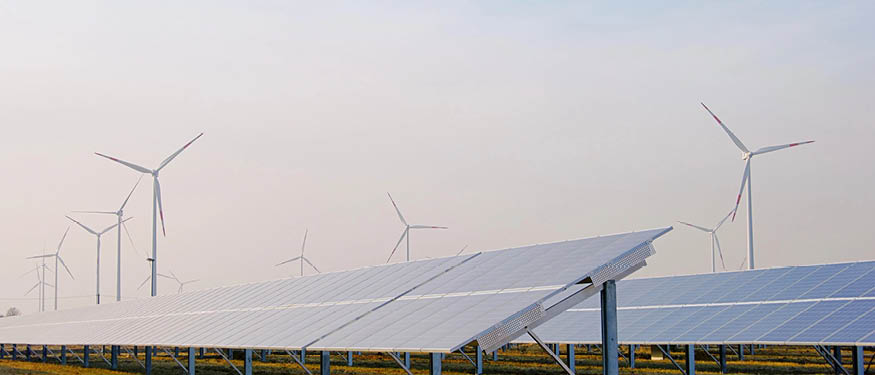In the world of finance, the rise of environmental, social and governance considerations has compelled bankers, investment professionals and banking and finance lawyers to reevaluate their mindset.
Moreover, from this year, this will also affect families and private individuals. The Hungarian National Bank's Family Green Finance Informational Program, introduced in 2023, targets individuals and families, aiming to provide practical assistance and useful information to promote conscious financial management that also serves the environment.
The program aims to educate and raise awareness among families about the indirect impact of their investments on financing sustainable projects. It emphasizes the long-term sustainability and quality of life for future generations through daily consumption decisions and investment choices.
Sustainability is crucial for ensuring the long-term wellbeing of the planet and future generations. It encompasses responsible practices that preserve natural resources, mitigate climate change and promote social and economic balance, ultimately creating a harmonious and sustainable world for all.
Acknowledging that there is no one-size-fits-all approach to ESG, the financial sector now faces a significant shift in its financing approaches.
Financing plays a pivotal role in upholding sustainability by providing the necessary resources to implement and support environmentally friendly practices and initiatives. Businesses are increasingly turning to corporate social responsibility financing, particularly ESG financing. This encompasses green loans, social loans, sustainability linked loans and transition loans in order to demonstrate their commitment to environmental considerations.
Accessible and targeted financing enables businesses, governments and organizations to adopt sustainable practices, develop innovative solutions and mitigate the negative impact of human activities on the environment.
Moreover, financing also facilitates research and development efforts, promotes education and awareness campaigns and fosters collaboration between stakeholders, all of which are crucial for achieving long-term sustainability goals.
ESG goes beyond mere shareholder strategy or marketing campaigns; it exerts a crucial influence on markets, extending its financial benefits even to countries like Hungary.
Sustainable Financing
Green loans
A green loan is specifically designed to finance projects or activities that have positive environmental impacts. It provides funding for projects focused on:
- Renewable energy;
- Energy efficiency;
- Pollution prevention;
- Sustainable transport; or
- Other environmentally friendly initiatives.
The borrower is typically required to use the loan proceeds exclusively for eligible green projects, such as renewable energy, energy efficiency, pollution prevention, sustainable transportation or other environmentally friendly initiatives, and may need to prepare regular reports on the environmental impact of the funded activities.
Social Loans
A social loan is geared toward financing projects or activities that generate positive social outcomes. It aims to address social issues such as:
- Poverty alleviation;
- Healthcare access;
- Affordable housing;
- Education; or
- Community development.
The borrower utilizes the loan funds to support projects that have a demonstrable social impact. They may be required to report on the progress and effectiveness of their social initiatives.
Sustainability-Linked Loan
A sustainability-linked loan, on the other hand, is a broader financing instrument that incentivizes borrowers to achieve predetermined sustainability performance targets. Unlike green loans and social loans, the use of proceeds is not restricted to specific green or social projects. Instead, the borrower's interest rate or other loan terms are linked to the achievement of pre-agreed sustainability performance targets.
As a result, the proceeds may be used to finance any kind of business activities that the borrower is pursuing, regardless of whether they are project-based or acquisition-based, or example. The incentivization lies in the fact that the borrower may be given financial benefits, such as a lower interest margin, i.e., lower financial costs altogether, if they meet certain targets.
Transition Loan
A transition loan aims to decarbonize emissions-intensive entities or economic activities that are crucial for future socioeconomic development but lack low- or zero-emission substitutes.
While no specific percentages of subsidization are defined, as no precise definition exists for the transition loan, the lender may offer financial support tailored to the borrower's transition needs. This support could include favorable loan terms, flexibility in repayment or advisory services to facilitate the transition to more sustainable practices.
Hungary's Path to Net Zero
Hungary is making impressive progress in its journey toward achieving a net-zero future fueled by a rising trend in the use of green loans. The Hungarian National Bank and the Hungarian government have spearheaded programs that reflect this commitment, although the development of social loans and sustainability-linked loans is still a work in progress within the country.
As outlined in the Hungarian National Clean Development Strategy 2020-2050, the government is prepared to take proactive measures, investing approximately HUF24.7 billion (around $74 million) in early action to achieve climate neutrality. In June 2020, Hungary demonstrated its dedication to decarbonization and alignment with global climate change efforts by introducing the Climate Protection Law.
This amendment signifies Hungary's recognition of the urgent need to reduce greenhouse gas emissions and address environmental challenges head-on.
Building on the success of the Funding for Growth Scheme Green Home Program, the Green Renewal of Qualified Consumer-Friendly Loan Program, launched in April, aims to support energy efficiency improvements in existing housing.
From April 1 this year, consumers opting for qualified consumer-friendly loan products can benefit from significant discounts, thanks to the inclusion of green key performance indicators within the program.
The introduction of such loans by nearly half of the banks offering consumer-friendly mortgages, with interest rate reductions of approximately 0.25%-0.5% compared to other housing loans, demonstrates a growing commitment to sustainable financing options.
One of the recent initiatives driving sustainable practices is the Factory Rescue Program, launched in late 2022, which focuses on supporting energy efficiency and renewable energy generation-related investments by large firms.
Through subsidies for energy efficiency measures and renewable energy projects, the factory rescue program acts as a catalyst for sustainable practices in the industrial sector and promotes the adoption of environmentally friendly technologies.
Recognizing the importance of transitioning to cleaner transportation alternatives, the Hungarian government has introduced a series of tax benefits and cash support to promote the adoption of electric vehicles.
The Green Program, launched in 2019, introduced green products and provides a favorable regulatory environment for financial institutions to promote sustainable operations.
In addition to regulatory efforts, a Hungarian model for reporting sustainability-linked loans in the market has emerged in the Hungarian National Bank's family green finance program, already discussed.
Looking ahead, a notable deal is to be made between DiG Hungary Kft. and KS Orka, as outlined in the letter of intent signed in November 2022, highlight the implementation of a new facility in Tura as the first project for 2023.
This endeavor aims to increase the volume of the renewable energy market in Hungary and unlock the country's vast geothermal potential, potentially paving the way for additional projects in the future.
Despite these positive developments, ESG funds are still considered new products, and it takes time for investors to become fully aware of and invest in them. However, Hungary's strides in promoting green loans and sustainable practices are indicative of a promising trajectory toward a greener and more sustainable future.
Rise of Sustainability-Linked Loans
The rise of sustainability-linked loans is expected to become an increasingly prominent trend in Hungary. With the government's proactive measures to foster sustainability and green financing, a conducive regulatory environment has been established for such loans.
Notably, sustainability-linked loans offer favorable terms and conditions, presenting financial incentives that drive companies to adopt sustainable initiatives and resulting in potential cost savings.
Moreover, internationally recognized standards and frameworks, including the United Nations sustainable development goals[6] and the U.N. principles for responsible banking, provide a common language and structure for sustainability-linked loans.
This harmonization facilitates the process for businesses and lenders to effectively structure and evaluate these financing arrangements.
By accessing sustainability-linked loans, companies can secure the necessary funds, while showcasing their commitment to managing environmental risks, further reinforcing the significance of such financing solutions.
Comment
In Hungary, while green loans are becoming increasingly popular, the development of social and sustainability-linked loans is still a work in progress.
Nonetheless, commercial banks are supporting these trends and Hungarian companies are signing up for sustainability-linked loans. With time, social and sustainability-linked loans are expected to gain further momentum in Hungary, given their positive impact on the environment and society.
By Gergely Szalóki, Local Partner, Bodó Bálint, Associate, Schoenherr
















